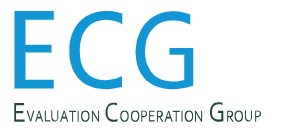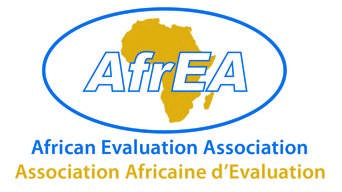Evaluations need to analyse the machinery of an organisation - IOE
Rome, 18 March 2024 – Evaluations are required to analyse how far organizational processes, procedures and setups are fit for purpose, as this often lays of the foundation of performance and, ultimately, success. This renders the methodologies to conduct these evaluations are complex and challenging. To exchange experiences of different organizations that have conducted such evaluations, a webinar organized under the auspices of the Evaluation Cooperation Group (ECG) discussed the main conceptual and methodological challenges of corporate evaluations. Speaking at the event, Dr S. Nanthikesan, Lead Evaluation Officer at the Independent Office of Evaluation of IFAD (IOE), presented lessons from IOE’s 2023 Corporate Level Evaluation of IFAD’s Decentralization Experience.
Held on 18 March 2024, the ECG webinar was chaired by Emmanuel Pondard, Head of the Evaluation Division (EV) at the European Investment Bank (EIB). In addition to the insights delivered by IOE’s Lead Evaluation Officer, the event featured presentations by Mónica Lledó Moreno and Lena Zimmer, respectively Senior Evaluator and Evaluator at the EV. Over 50 participants joined the on-line session.
Discussions sought to shed light on a number of salient issues related to corporate evaluations, including how evaluation differs from organisational audit in this respect; the evaluation methods in the absence of a defined normative framework; and how to address the sensitivity of evaluated stakeholders who may feel directly judged vis-à-vis their roles and status within the organisation.
Dr Nanthikesan touched upon a number of these issues in his presentation. He explained that the framework for evaluation was determined based on management proclamations that decentralization was pursued to enhance IFAD’s contribution to development effectiveness. The evaluation pursued a mix of quantitative and qualitative methods to assess the contribution of field presence to improving the performance of lending and non-lending activities and to assess organizational fit-for-purpose to deliver effective operations and country strategies. He also noted that given the sensitivity of the evaluation of IFAD’s decentralization, to improve buy-in, IOE undertook sustained engagement with the management throughout the evaluation process, from design to reporting. This resulted in an enthusiastic support from staff and middle management, while Senior Management took a different stance, upon the initial release of the report, in April 2023. The situation evolved over the course of the following months, as the importance of the evaluation’s findings became increasingly appreciated.In November 2023, when IOE held an organization-wide learning event to discuss the evaluation, Management pledged to implement all recommendations and outlined the actions already underway.
In the same vein, the EV presentations highlighted the added value of the evaluation of EIB’s advisory activities in the EU. The report found that while the EIB has developed a wide range and breath of advisory activities, the advisory offer in its entirety is rather unknown to both internal and external audiences. For this reason, communication across directorates and mandates would need to be improved to increase synergies. In addition, clearer long-term strategic orientations could help to better position advisory in the EIB’s business model.
The ECG is dedicated to harmonizing evaluation work among multilateral development banks by working to strengthen the use of evaluation; providing a forum to share lessons; developing harmonized performance indicators, and evaluation methodologies and approaches; enhancing the professionalism of evaluation; and helping build evaluation capacity. The Group was established in 1996.
For further information, please contact Dr Alexander Voccia [here]
RESOURCES
- To access the presentation delivered by Dr S. Nanthikesan, please click here.
IOE 20th ANNIVERSARY
- To access the brochure ‘More than a journey | 20 years of independence, please click here.
- To access Fabrizio Felloni’s interview on the evolution of independence of IOE, please click here.
- To access the latest edition of Independent Magazine, please click here.
- To learn why independent evaluation makes IFAD a more credible institution, please click here.
CONTACTS


